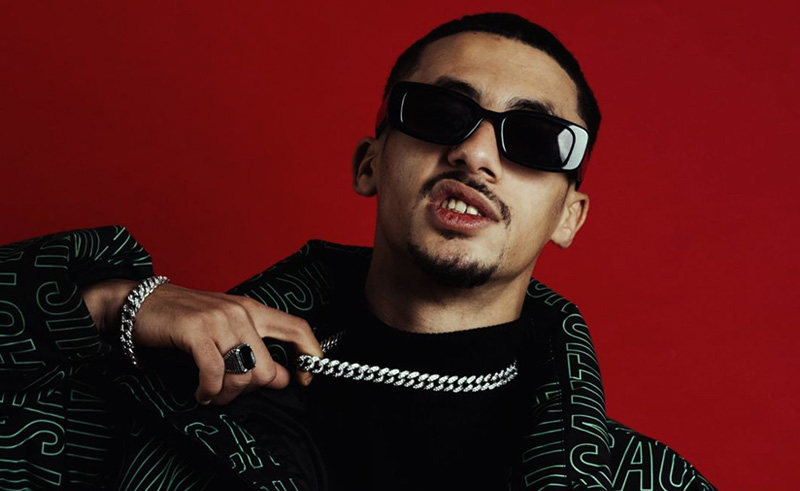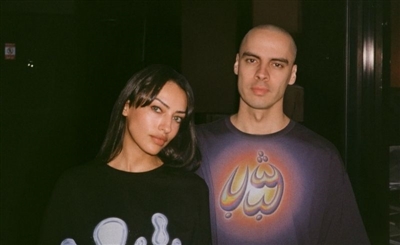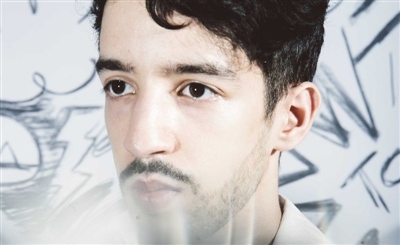How Drill Is Taking Over Egypt’s Rap Scene
From Wegz to Abyusif to Maadi Town Mafia, the subgenre has grown to become one of the most used styles in Egyptian rap.

In recent years, rap music has been one of Egypt’s most popular genres of music, with artists such as Wegz going on to rival even the region’s biggest pop stars. Egypt’s recent rap scene emerged from independent artists making tracks in their bedrooms and has evolved into a rapidly growing industry, garnering the attention of global record labels, advertisers, and music fans from all over the world.
Since its reemergence, Egyptian rap has undergone multiple stylistic changes by adopting sonic aesthetics from various influences around the world including old-school hip-hop and tra to Shaabi, mahraganat, afro-beats, and of course, drill.
Drill has become a dominating musical style in the Egyptian rap landscape, with artists such as FL EX, Husayn, and Wingii bringing the subgenre to the forefront with their impressive list of hits from 2022 such as ‘Khamsa’ and ‘Stop (Magnolia)’. The artists, who are part of local collective Maadi Town Mafia, have infused the genre with their signature flows and delivery styles that make use of unique vocal affectations, going on to influence many-a-rapper.
Drill beats are usually easily identifiable, as the genre contains several core elements common like sliding basslines, brooding minor-key melodies, and an unmistakable hi-hat pattern, enabling rappers to get inventive with their flows and vocal performances.
The genre originates from Chicago and dates back to the early 2010s, with the regional sub-genre ‘UK drill’ gaining prominence a few years later. UK drill has gone on to influence local rap scenes worldwide, with variations of the genre emerging from France, Germany, Ireland and beyond.
In Egypt, artists such as Maadi Town Mafia’s FL EX, Husayn and Wingii have become associated with drill’s recent surge in popularity, but attempts at popularising the subgenre in Egypt date back a few years prior. Over the years, this has included artists such as Abyusif, DizzyTooSkinny, Marwan Pablo, Abo El Anwar, Moscow, Mousv, and Wegz experimenting with drill sonics.
Wegz was a particularly interesting early adopter, having collaborated with video game giants PUBG, in music video-styled commercials.
Across their releases, Maadi Town Mafia have built a brand around the subgenre by embracing a visual presentation style that brings UK drill music video aesthetics to the streets of Egypt. (much in the way that Palestinian record label BLTNM have done in the Levant).
Think action-packed footage, rugged imagery, and combat-ready fashion choices, such as masks, bulletproof vests and combat boots. Through their success, Maadi Town Mafia, along with their contemporaries experimenting with drill, have captured the imagination of fans from around the region, leading to a domino effect, with many emerging Egyptian rappers looking to the subgenre, today more than ever before, as the obvious sonic direction to explore.
One can argue that the music made within this subgenre is, at times, derivative when the key elements are used in a formulaic sense or simply copy and paste. However, some artists have considered this and tried to add their original twist to the subgenre, such as Ziad Zaza on his album El Rays, where the instrumentation shows a more experimental use of sampling. The album was produced by several contributors, including Harry, 15, Lil Zoz, Moharram, Mahmoud El Sammad, and Ismail Nosrat.
With this forward-thinking mentality, Egyptian drill holds the potential to develop into a more unique and culturally representative genre (musically speaking). And as the use of drill shows no signs of slowing down, the genre’s progress and development are shaping up to be an interesting journey to behold.
- Previous Article test list 1 noise 2024-03-13
- Next Article Adriatique & Cercle Host Electronic Music Event at Hatshepsut Temple
Trending This Month
-
Jan 29, 2026
-
Feb 20, 2026






















